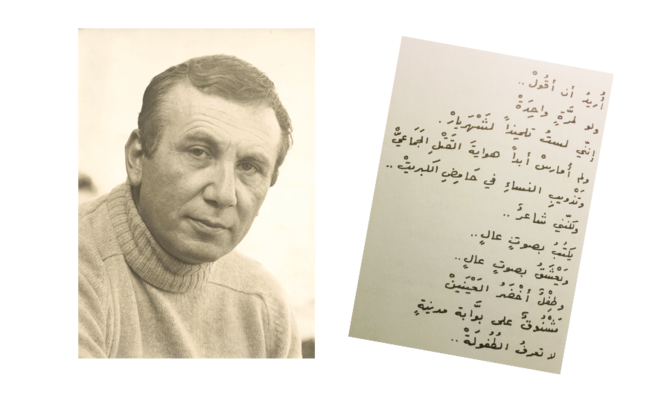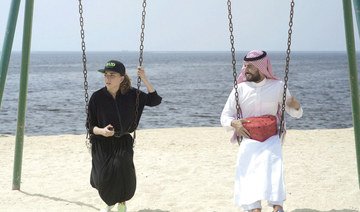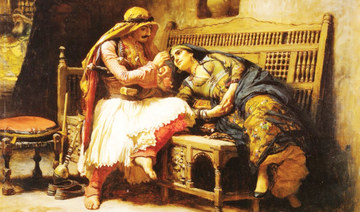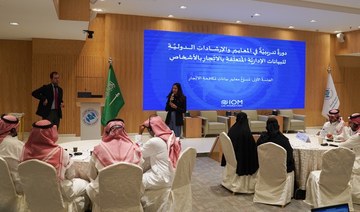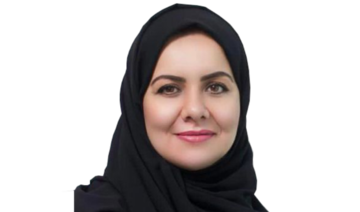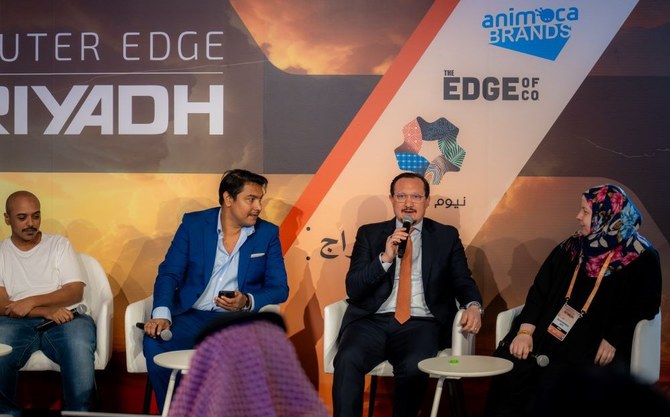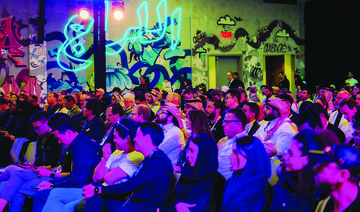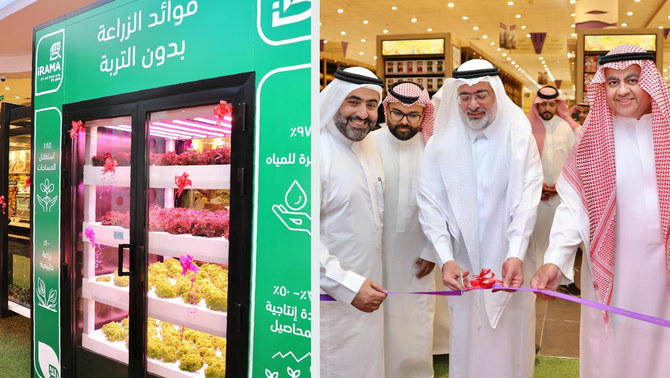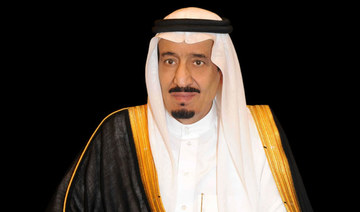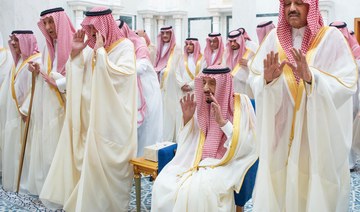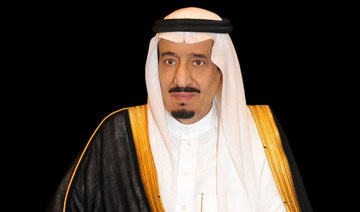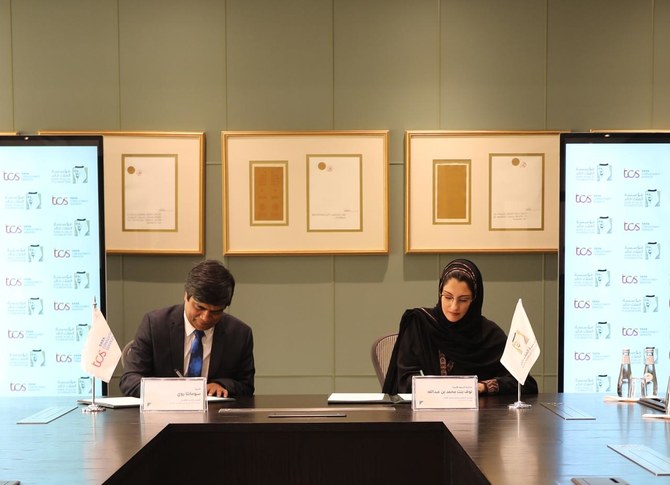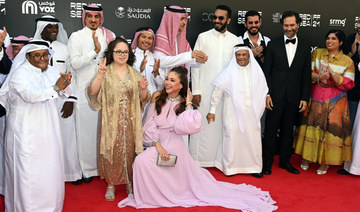JEDDAH: The language of love has been an integral theme of Arab poetry.
From before Islam, poets have inked expressions of love, affection and passion into their verses.
The word for poet in Arabic is sha’er, which means the feeler or the one who feels, and from the deserts of the Arabian Peninsula to the Andalusian aristocratic gardens, classical Arabic poetry is filled with ancient love tales.
Many remain popular today, inspiring contemporary poets, singers, artists, and musicians.
Antarah ibn Shaddad Al-Absi and Abla (sixth century), Qays ibn Al-Mulawwah and Leyla (seventh century), Kuthayyir ibn ‘Abd Al-Raḥman and ‘Azza (eighth century), and Ibn Zaydun and Princess Wallada (11th century) are examples of the numerous pairings from romantic Arabic verse.
Arabic poetry has steadily evolved through the centuries and developed new forms and themes under the influence of Western literature, partly as a result of colonialism and globalization. A sense of modernity appeared in the aftermath of World War II.
One Western cultural phenomenon that reached the Arab region was Valentine’s Day or as it is called in Arabic, Love Day.
Although the origins of Valentine’s Day date back to A.D. 269, it is only since the mid-1800s that it has been linked to romance, and was not celebrated as a holiday until the mid-19th century.
As a commercial and social event, Valentine’s Day is still in its relative infancy in the Arab world but is fast growing in popularity. The day is now often mentioned in Arabic poetry by scribes such as Lebanon’s Elia Abu Madi, Egypt’s Farouk Gouida, Saudi Prince Badr bin Abdul Mohsin, and Nizar Qabbani from Syria.
Love me even more, even more
Oh my most beautiful fit of madness, even more
Drown me even more, my lady, the sea is calling me
Kill me even more, maybe death would be my rebirth
Oh most beautiful woman in the universe, love me
Oh you whom I loved until love burned, love me
Oh you whom I loved until love burned, love me
If you’re looking for somewhere to stay, I’d have you reside in the light of my eyes
Your love is my map, the map of the universe no longer matters to me
I am the oldest capital of sadness and my wound is a pharaonic inscription
My pain extends like a flock of birds from Baghdad to China
Love me even more, even more
Oh my most beautiful fit of madness, even more
My heart’s canary, my April
Oh you are the sands of the sea and the soul of my soul,
Forests of olives,
A taste of snow and a taste of fire,
(And) a flavor of my doubt and certainty
I feel scared of the unknown so shelter me
I feel scared of the dark so hold me tight
I feel scared of the cold so cover me and stay be my side, sing for me
Since the beginning of creation, I have been looking for a homeland for myself
I have been looking for the love of a woman which can take me to the edges of the sun and throw me off
Love me even more, even more, oh my most beautiful fit of madness, even more
Oh, light of my life, my fan, my lantern, the fragrance of my gardens
Stretch out for me a bridge made of the scent of lemons
And place me as an ivory comb in the darkness of your hair, and forget me
For you I have prepared my laments and left history behind
And I scratched out my birth certificate and cut all my veins
Love me even more, even more, oh my most beautiful fit of madness, even more
Qabbani is considered to be one of the most influential voices in the history of Arabic literature. His pioneering style has had a huge influence on contemporary Arabic poetry with many young poets and songwriters imitating his powerful writing technique.
His poems have been translated into various languages and sung by famous performers such as Mohammed Abdel Wahab, Abdel Halim Hafez, and Kadim Al-Sahir.
Qabbani’s romantic poetry has also found its way into English rap songs. Although Arabic poetry and English hip-hop music are strikingly different, the Syrian American hip-hop artist Omar Offendum was able to successfully use Qabbani’s poetry in his music.
Offendum converted Qabbani’s famous love poem sung by Hafez, “Qariat il-Finjan,” into the rap tune “Finjan,” mixing the original Arabic text and its translation. On another track, “More love,” Offendum uses Qabbani’s voice in the background.
Other young Arab artists are also discovering the beauty and complexity of classical and modern Arabic romantic poetry.
Saudi artists Abdulrahman Mohammed and Mohab Omer have become known throughout the region for their songs based on poetry.
Thanks to artists such as Mohammed and Omer, young Arabs have been able to find a link between their culture and classical literature through music and, most importantly, their hearts.



